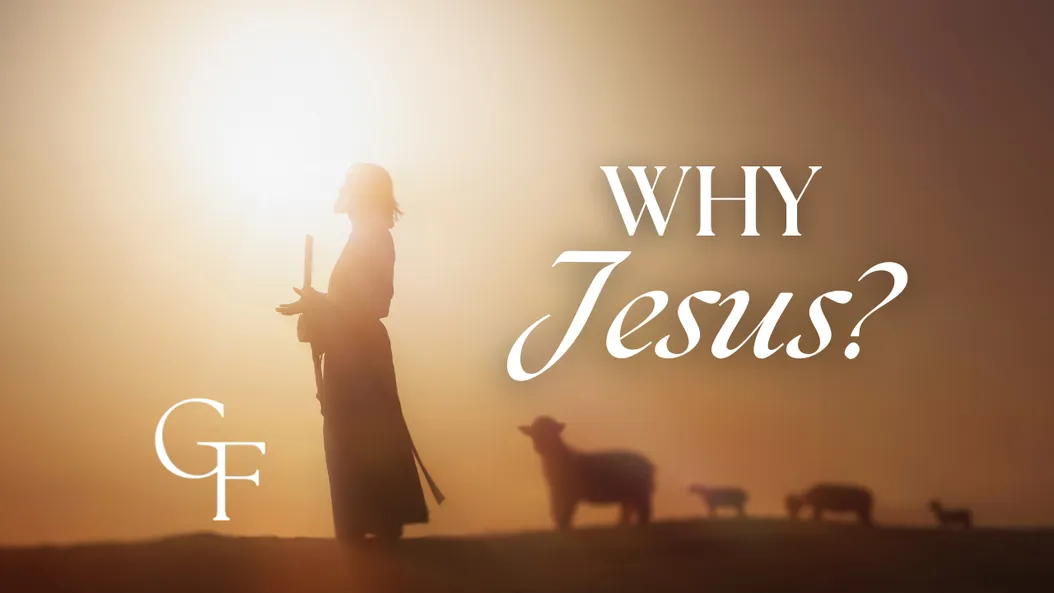
Intro to the Book of Jonah
The Old Testament Book of Jonah is a brief story in the Bible, but it is filled with important and timeless lessons.
This analysis examines what the story of Jonah and the big fish can teach the modern world, with a chapter-by-chapter recounting.
Earlier this year, our church's lead pastor took the time to deeply explore this well-known yet often misunderstood story, clarifying its true meaning.
Chapter 1: Jonah Flees the Presence of the Lord

Jonah, the son of Amittai, was a prophet who lived and served during the reign of Jeroboam II in Israel (roughly 793 to 753 BC).
Jonah's story begins in northern Israel, where God commands him to go to the city of Nineveh, the capital of Assyria at the time, and to proclaim judgment against it because its evil and wickedness had become rampant.
Jonah does the opposite, though, and chooses to disobey God.
In fact, among all sixteen Bible prophets with books named after them, Jonah is the only one who rebels against God, and he does so twice.
This first instance is, of course, by fleeing in the opposite direction of Nineveh to a city called Tarshish, where he proceeds to pay for a voyage to get far away from Nineveh because, in his view, the people there have nothing to do with his own Jewish people and the country of Israel.
Jonah is the first of the main prophets to be tasked by God with going somewhere that isn't Jewish, but Jonah is uninterested in speaking to the Ninevites for several reasons.
For starters, the Assyrians (and by extension, the Ninevites) were perhaps the most vicious empire the world had seen up to that point, showing fierce hatred towards Jews at nearly every corner of the city.
Their idea of art, which was hung and chiseled into sculptures throughout the city, often included imagery of dead Jews being impaled on poles and sticks.
So, it goes without saying that Jonah wouldn't want anything to do with people like the Ninevites, but let's take a closer look.
As the story unfolds, Jonah's true character and heart are further revealed.
What Jonah's Disobedience Signifies
You see, God chose Jonah to deliver a message; therefore, Jonah has a responsibility to speak on God's behalf to the people of Nineveh.
Jonah's disobedience and lack of faith in God are not just a fearful reaction born from disbelief that God will protect him; they are a clear rejection of God's will and authority.
Jonah was like many of the Israelites of that time, believing that God only truly loved and favored THEM, the Jews, whom the Lord had chosen as His nation centuries prior.
The idea that God would even try to save a society of gentiles (non-Jews) who, in Jonah's view, weren't "worth the trouble" frustrated the prophet.
Blinded by personal pride and racial nationalism, Jonah found it much easier to disobey God with a hardened heart toward the Ninevites.
Put another way, God sends Jonah to Nineveh as His instrument to allow the Assyrian city a chance to be spared and in doing so, aims to rescue Jonah from his intense pride, ego, and selfishness.
However, when God's command is blatantly ignored, Jonah quickly boards a ship in the port city of Joppa to go his own way.
You see, running from God is easier than many might think at first. Satan, the great adversary, enjoys nothing more than to "ready a ship" for our escape, and because God loves us deeply and love itself is a choice, He grants us the free will to walk away from Him at any time.
My Pastor, Josh Martin from Grace Church San Diego, put it like this:
And it is very true. But part of God's goodness and mystery is that He will also fight us in order to save us.
God Sends a Great Storm
Now, the ship's crew was paying a heavy price for Jonah's disobedience, a cost that could have threatened their very lives. What stands out about the next verse is that Jonah remains at peace in his heart as he continues to flee from God's mission, even when others' lives are at stake.
I anticipate that many people reading this section of the story might easily miss the importance of this particular verse. I know that I paid little to no attention to it when I first read the book of Jonah for myself.
Maybe Jonah is tired from a stressful journey of disobedience?
Not quite...
Peace In His Heart...
The truth is that Jonah cares very little (if at all) about his disobedience, let alone the consequences of his actions.
I'm not sure about you, but stress and remorse usually don't put people to sleep; in fact, quite the opposite. Jonah, who was able to sleep during the start of a storm like this, fully aware of what he had done in disobeying God, represents all of us in some form or fashion.
Many times in our lives, we "have peace" about doing things that we know are wrong but "feel" to be right.
Whether it's lying, cheating, stealing, sleeping with our significant other despite not being married, or engaging in several different behaviors that the rest of the world might celebrate, we choose to do such things even though we know God does not delight in them.
I know that, for myself, it has happened far too often...
This is a matter of spiritual discernment and a topic that warrants a more in-depth analysis in a separate article. But for now, just know that there are two voices "in our hearts."
- The voice of the great enemy that appeals to the shallow parts of the ego, which in many cases, can be deafeningly loud amidst the competing noises of the world.
- The voice of God that appeals to the depths of the soul, often like a gentle whisper that is so easily overlooked and frequently pushed into the periphery of life.
Of course, we all feel convicted by the Holy Spirit if we genuinely believe that God is Lord of our lives, and while I would never condone any amount of sin, unfortunately, we all stray from the path that our Lord would lay out for us.
It is better to feel remorse when we know we have fallen short in God's economy than to feel nothing at all when we run; at least when God's Holy Spirit convicts us, we know that we are alive and not spiritually dead in some capacity.
Knowing whether we hear the Lord's voice or Satan's voice requires deep and profound discernment—the kind that I honestly don't know if I even possess.
Stay alert and be mindful of whose voice you're listening to. I'll do my best to do the same.
Confronted by the Crew
Again, Jonah's sin not only put himself in danger but also endangered others.
That's universal to all of us.
When we sin, we ultimately have a negative impact on those around us. And very rarely, (if ever), do our decisions ONLY affect ourselves. I think we can all benefit from remembering this.
In ancient times, lots were cast when an impartial decision was needed. The exact shape and nature of these objects were mostly unknown, and the specific method by which they were cast is also somewhat lost to history.
What's important to know is that the "heathens" in those days (people who didn't follow Judaism) cast lots and believed that the gods would guide and determine the outcome. In the case of Jonah, the lot "fell" on him as the crew tried to find out who was to blame.
Whether the Lord directed these lots or not, the sailors continued to question Jonah even more.
Cast Into the Sea
After some back and forth, the crew asks Jonah what they can do to improve their current situation. Jonah responds:
Initially reluctant to do what Jonah had said, the men try to row faster to reach land for safety, but it doesn't work for them. They call out to God in their moment of fear and pray:
God Will Fight Us to Save Us
How many times have you scrolled through social media and come across someone's daily story or a post that reads something like, "Satan sent a storm, but God will deliver me through it?"
Dramatic pause...
In the case of Jonah, I believe it’s very clear that the storm isn't from the great enemy but from the Lord Himself.
Sin has consequences. In fact, the Bible tells us that the wages of sin is death (Romans 6:23). But although the fair price of rebelling against God is death for Jonah, the Lord is still pursuing the prophet's heart.
Yes, God needs an instrument to speak to the Ninevites, but He doesn't necessarily need Jonah because He can use anyone else He chooses.
God still believes in Jonah and is willing to confront the prophet to save him, even by using a distressing situation to teach a broader lesson about humanity's sin and pride, as well as the necessity of loving one's enemy, among other things.
God is not punishing Jonah in this moment, but instead continuing to pursue him, because contrary to popular belief, the storm and the fish swallowing him are not meant for retribution but for restoration.
God is always pursuing our hearts. He is constantly moving and desperately trying to establish a meaningful connection with us.
We humans are often quick to run away from God or to "row our way out" of brutal "storms" in our lives, but in many cases, submitting to the King of creation is the only true path to finding peace.
When we run away from God, we miss out on the great purpose He has for us. But the Bible tells us that:
This means that even if we miss God's purpose for us, we can never escape His love. Josh Martin, again, expresses it best:
Why?
Because God is Love.
Chapter 2: Jonah's Prayer

The Bible does not mention a whale, unlike many versions of the story of Jonah.
It's unclear what kind of fish swallowed Jonah, but it is very clear that the great fish is mentioned only three times in the story: when it is called upon by the Lord to swallow Jonah, when Jonah begins to pray from its belly, and finally when God commands it to vomit Jonah back onto dry land.
That's all.
While inside the belly of the great fish, Jonah prays a prayer of distress and references Psalm 120.
Jonah’s time in the belly of the great fish is symbolic of humanity when we find ourselves in difficult circumstances, reminding us to turn to God in moments of distress.
Many biblical stories depict a person or group overwhelmed by distress, crying out to God, and Jonah's situation is no different here.
From the nation of Israel in the book of Exodus, who were enslaved by the Pharaoh of Egypt, to the contrite thief on the cross next to Jesus, who asks the tortured King if he will be remembered as Jesus enters the Kingdom, for which Christ famously responds to him:
Many scholars say that the belly of the beast, where Jonah now finds himself, symbolizes "the pit" of distress that we all experience when we run from or disobey our Creator, and I somewhat agree.
Yes, Jonah, running from God, landed inside a large sea creature's stomach, but that same creature really represents God's mercy, as He called upon it to save Jonah from his dire situation.
Jonah only has himself to blame, but God isn't finished using the prophet for a much greater purpose.
From what I can deduce, however, the actual "pit" is something MORE profound. For Jonah, it isn't the storm, the sea, the crashing waves and ferocious skies, nor is it the belly of the great fish, the crew, the ship itself, and not even Tarshish.
As we will soon see again, Jonah still hasn't accepted God's desire to give the Ninevites a chance to repent from their wicked ways.
Still driven by proud nationalism, Jonah would rather see God bring justice to the Assyrian city with fire from the sky than even think about a merciful outcome. In a way, Jonah idolizes himself because he prioritizes his own idea of justice over God's righteousness and love.
Remember that anything apart from God leads to "the pit."
A Genuine or Half-Hearted Prayer?
Many biblical scholars debate whether Jonah's prayer is genuine or half-hearted. On the one hand, Jonah admits that he is in distress and that he has not been faithful to God's command.
On the other hand, Jonah refers to himself by saying 'I' and 'my' nearly twenty times, indicating that his prayer is, in truth, somewhat selfish.
No matter where the reader stands on how contrite Jonah truly is, one thing is sure: Jonah eventually realizes that he must fulfill what God has commanded him to do in Nineveh.
So, Jonah offers his commitment to God and is then vomited up by the great fish onto dry land.
Chapter 3: Jonah Goes to Nineveh

Jonah doesn't emerge from the great fish's belly with love in his heart for the Ninevites, far from it. Instead, he reluctantly undertakes the task that God has given him for a second time.
Jonah soon reaches Nineveh and quickly "phones it in" when delivering his message to the people. In other words, Jonah says what he needs to say, and nothing more.
In an eight-word message, Jonah shares the following aloud to the Ninevites:
God then begins to move, and the rest is up to Him.
I can relate to this as someone who has been tasked with doing something in my life and ended up doing it half-heartedly and without much sincerity or enthusiasm. If my heart isn't in something, then I tend to be less passionate about it, and I believe this is true for most people.
However, God doesn't require much from mankind to move through the world in meaningful ways.
Once again, Pastor Josh Martin articulates it best in the delivery of his recent sermon on this particular topic:
Wow.
God wants us to be heartbroken over our sin because it's a serious offense. He's not just some bully in the sky judging us for every small action.
God desires us to be made whole by seeking Him in relationship, and a key part of that is recognizing that our sin is an affront to all things good, and by extension, the Lord.
Of course, sometimes we don't have a problem with sinning and act like the rebellious child who refuses to apologize because we "don't mean it."
The capacity of Jonah's heart has not yet been moved.
However, God can work with this and does so in both Jonah and in each of us in the modern day.
God meets Jonah right where he is, understanding his heart's attitude toward the Ninevites, because He trusts that Jonah is still open to learning and growing. That’s why God remains gracious and patient with him.
Nineveh Repents
Unlike most other prophets in the Bible, Jonah's message is successful. The Assyrians of Nineveh do what the Jews rarely do: believe the message and repent.
No questions asked.
The word reaches the King of Nineveh, and he commands the people to observe a city-wide fast and to repent for all the evil acts they have previously committed.
And God does precisely that. He relents from the disaster planned for the Ninevites and spares them all.
God shows that He is flexible enough to change His plans to accommodate a repentant people.
Chapter 4: Jonah's Anger & the Lord's Compassion

However, Jonah isn't flexible enough to overcome his own preconceived notion that all prophecies should eventually come true.
Despite delivering a message that saves over 120,000 people in a city by turning them to God, Jonah considers his task a failure because it does not lead to the destruction of Nineveh and its inhabitants.
At the beginning of this final chapter of Jonah's story, he reveals his heart to us by telling God that he knew the Lord would show mercy to the Ninevites, and this is why he tried to run away.
This is based on a common theme that is repeated throughout the Bible: that God is gracious, merciful, and full of steadfast love.
Jonah never wanted to deliver God's message to the Assyrian city because, in his view, God should only be gracious, merciful, and loving toward the Jews (Jonah's own people).
If you can recall, Jonah also tried to "throw in the towel" when he told the crew of the ship to hurl him into the sea. Jonah would rather die than see his nation's enemies spared.
As the reader, we might gasp at this discovery in the story, but to provide some context, trouble is brewing between the Israelites and the Assyrians, and Jonah's people are only about a single generation away from being enslaved and conquered by the same race and culture to which he was tasked to deliver his message.
The point is that God cares for EVERYONE, not just His own chosen people (the Jews/Israelites). God emphasizes to Jonah that He has the right to spare anyone He chooses at any time, but Jonah remains dissatisfied.
God tries to comfort a pouty Jonah on the edge of the city by sending a large plant to provide shade from the sun, revealing that up until this moment, the only time Jonah is pleased in the entire story is when the Lord comforts him.
Jonah is displeased when God tries to save an entire city of people he considers unworthy, but he is pleased when he is provided a plant to shade his head. Jonah's heart and character remain essentially unchanged when God removes the plant from him.
And then Jonah's story ends quite suddenly when God asks Jonah a haunting and thought-provoking question:
Joyful Obedience Takes Time
As I sit and write these words to you, I must admit that I don't always feel joyful obedience in my own life.
The truth is that I am often driven to do things that, on the surface, please and glorify God, yes, but often with deep and hidden expectations that I will garner something in return.
Whether it is popularity, an increase in status or influence, power, or control, the euphoric feeling of being praised by others excites me.
Similarly to Jonah, where I currently live is in a community filled with groups of people who often hold very different worldviews than mine, vote differently than I do in elections, and frequently celebrate lifestyles that I do not subscribe to.
Whether my disapproval is justified or not doesn't really matter, because like Jonah, I too am often reluctantly obedient — and sometimes for the wrong reasons altogether.
Sharing this is an honest example of how the story of Jonah continues to convict me with each reading.
Yes, I am aware of the theological details embedded in stories like these, but even knowing what is right, my heart still often feels unaligned.
I suppose I represent much of humanity and our tendency to understand God's word deeply, and yet still commit grave injustices.
After all, numerous religious leaders throughout history, many claiming to be Christian, were well-versed in their Bibles and their theology. Yet, they participated in institutions of slavery, oppression, discrimination, racism, reverse-racism, sexism, bigotry, hatred, violence, and more — NOT because of the Word of God, but because the human heart is false and beyond understanding.
The only hope we have is to recognize that we are a sick and broken creation in desperate need of healing and salvation. Jesus meets that need by inviting us into the folds of His trinitarian love to restore the broken parts of our hearts.
The story of Jonah is meant to be read in two fundamental ways:
- Where we see ourselves in Jonah.
- Where we see Jesus in Jonah.
Jonah only obeyed God after he was distressed in "the pit" (the place apart from God).
However, Jesus was joyfully obedient, even in the lead-up to and during His death on the cross.
Jesus Christ: A Great & Better Jonah

Jesus’ prophecy in Matthew 12:40 compares Jonah’s three days and three nights in the fish’s belly to His own three days and three nights in the heart of the earth.
The story of Jonah is a type of foreshadowing of the sacrifice of Jesus Christ, who would provide a means of salvation for all people, both Jew and gentile.
The story of Jonah is similar to the story of Jesus in that it shows how God is always willing to rescue us from situations caused by our disobedience, and He does so gladly.
Jesus Christ fulfills the prophecy of Jonah. Just as the great fish swallowed Jonah and then vomited him out after three days, Jesus was buried in the earth's heart and then rose again on the third day.
Jonah's tale is a compelling reminder of Jesus Christ's sacrifice, offering forgiveness and salvation for all people and for all time.
We are called to follow Jesus, just as Jonah was called to follow God’s commands, and to trust in His love and redemptive power.
In so doing, we can receive the healing balm that restores both ourselves and the wounded world around us.
Not About a Huge Fish... But Something More

We learn that God’s love and mercy are available to us, even amid our disobedience and sin. The story of Jonah shows us that God can use anyone, regardless of their background or circumstances, to accomplish His purposes.
God cares for everyone and reserves the right to change His mind to accommodate a repentant people.
In the end, God always does what is right, in one way or another, because He is the loving, gracious, and merciful God of second chances.
Liked what my Pastor had to say? Check out his book, which serves as a beautiful memoir of his life.



